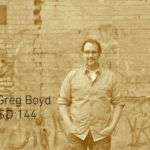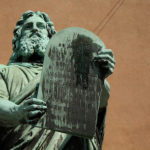We run our website the way we wished the whole internet worked: we provide high quality original content with no ads. We are funded solely by your direct support. Please consider supporting this project.

Making America an Idol
I write as a kingdom person in the context of America, presently the dominant empire in the world. In that light, I’d like to address the fact that my calling is to resist nationalism even in the midst of appreciating my own country.
America was conquered by white Europeans in the name of nationalistic religion. Almost all nations throughout history have gone to battle and conquered under the banner of some god or another. “For God and country” is hardly a new military slogan! The European conquest of America differed only in the fact that its tribal god wasn’t Zeus, Apollo or Allah. It was Jesus. In the name of the crucified messiah, white Europeans claimed this land, slaughtered millions of Native Americans, enslaved millions of Africans, and eventually came to rule.
Not only this, but following the tradition of Eusebius and Augustine (as well as pagans throughout history), the success Europeans enjoyed in vanquishing their enemies was viewed as proof that God was on their side. It was “Manifest Destiny” that white Europeans were to lord over the land and over non-Europeans.
This Christendom mindset has pervaded American culture and religion from the start. Throughout our history, and yet today, Americans have tended to see their nation as a “Christian” nation. We have tended to view ourselves as uniquely “under God,” uniquely righteous, and uniquely destined by God to be a “light to the world.” We tend to believe that American soldiers fight “for God and country,” for we are just and righteous while our enemies are “evil-doers.”
Now, there’s absolutely no evidence that God himself agrees with any of this—unless, of course, you buy into the old pagan argument that military power is itself proof of divine favor. The myth of America’s favored status is simply something we’ve told ourselves for centuries to buttress our tribal self-identity, shore up our collective tribal allegiance, motivate our tribal warriors, and express our tribal religion. The myth, in other words, is just our particular version of nationalistic idolatry.
This isn’t to deny in any way that America has done, and continues to do, a lot of good around the world. But as people who are called to keep God’s kingdom holy, we must all take great care not to confuse whatever good we think our nation does with the kingdom of God. While some nations are better in some respects than other nations, no nation is more aligned with the kingdom of God than any other. For, as Jesus reminds us, the kingdom is “not of this world” (John 18:36).
—Adapted from The Myth of a Christian Religion, pages 83-84
Photo credit: Oky – Space Ranger via Visualhunt.com / CC BY-NC-ND
Category: General
Tags: America, Kingdom of God, National Idolatry, Nationalism
Related Reading

Politics & the Kingdom of the World
Instead of aligning any version of the kingdom of this world with the kingdom of God—as is common in American Christianity—kingdom-of-God participants must retain a healthy suspicion toward every version of the kingdom of this world. This is especially necessary regarding one’s own version because that’s precisely where we’re most tempted to become idolatrous (see…

Christianity and American Politics
Greg was recently featured in Missio Alliance’s Seminary Dropout podcast to share his thoughts about the role of Christians in American politics. Today we’re sharing part 1 of that conversation. What is the role of the Christian in American politics? Should Christians vote? In this election filled with scandal and unprecedented vitriol, how can we display…

Should Christians Recite the Pledge of Allegiance?
A number of years ago I attended a basketball game at a Christian school. Just before the game everyone was asked to stand and say the Pledge of Allegiance. So I stood, placed my hand over my heart, and began to recite our national creed. Halfway through, however, I began to wonder what I was…

The Politics of Jesus, Part 2
Even in the midst of politically-troubled times, we are called to preserve the radical uniqueness of the kingdom. This, after all, is what Jesus did as he engaged the first century world with a different kind of politics (see post). To appreciate the importance of preserving this distinction, we need to understand that the Jewish…

Reinterpreting the Law, Violence and Nationalism of the OT
The law of the OT was intended to serve a negative object lesson. This finds its clearest expression in Paul. To begin, Paul interpreted Jesus’ death on the cross largely in sacrificial and substitutionary terms. On the cross, Paul believed, Jesus suffered the full curse of the law on our behalf. Because of this saving…

God’s Non-Violent Ideal in the OT
While God condescended to working within the violent-prone, fallen framework of his people in the Old Testament—as I argue in Crucifixion of the Warrior God—the OT is also full of references to how God worked to preserve his non-violent ideal as much as possible. He did this by continually reminding his people not to place…
